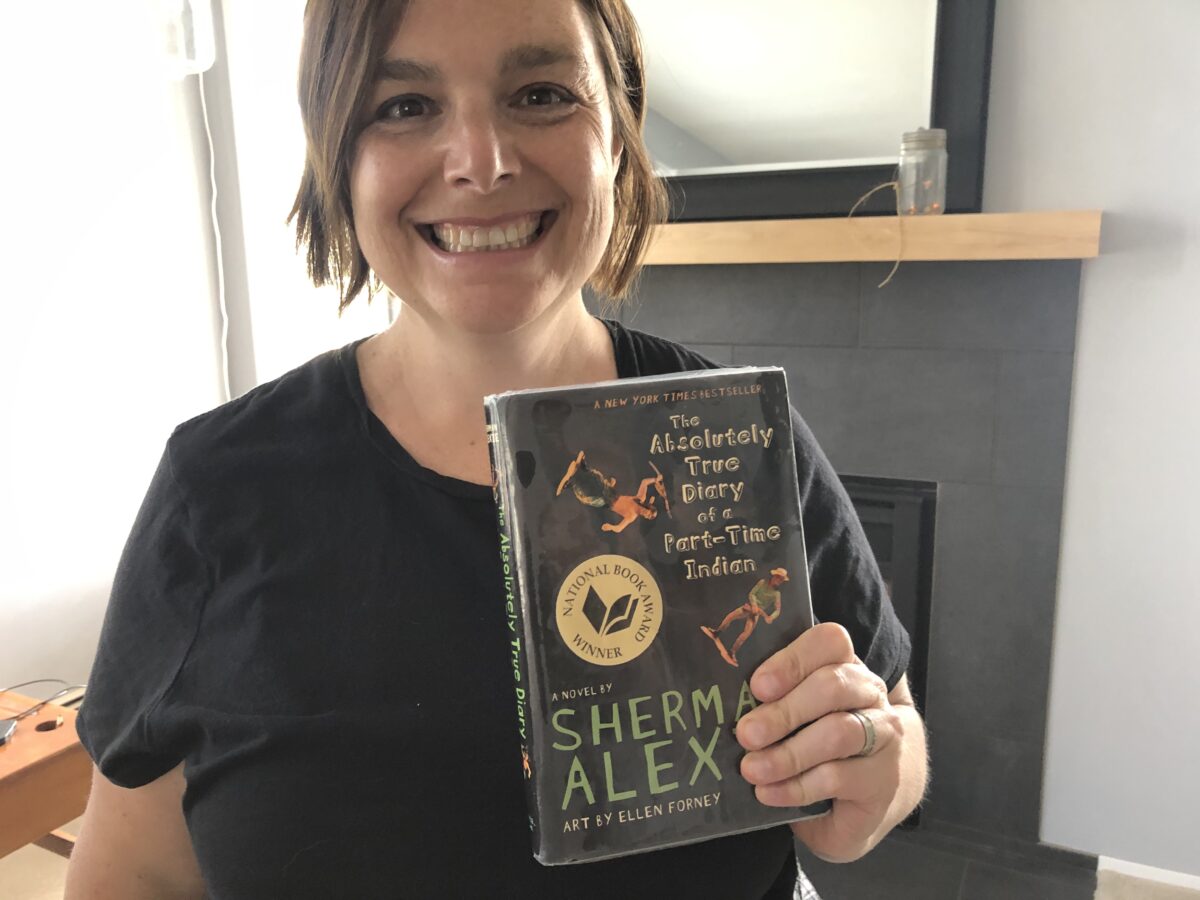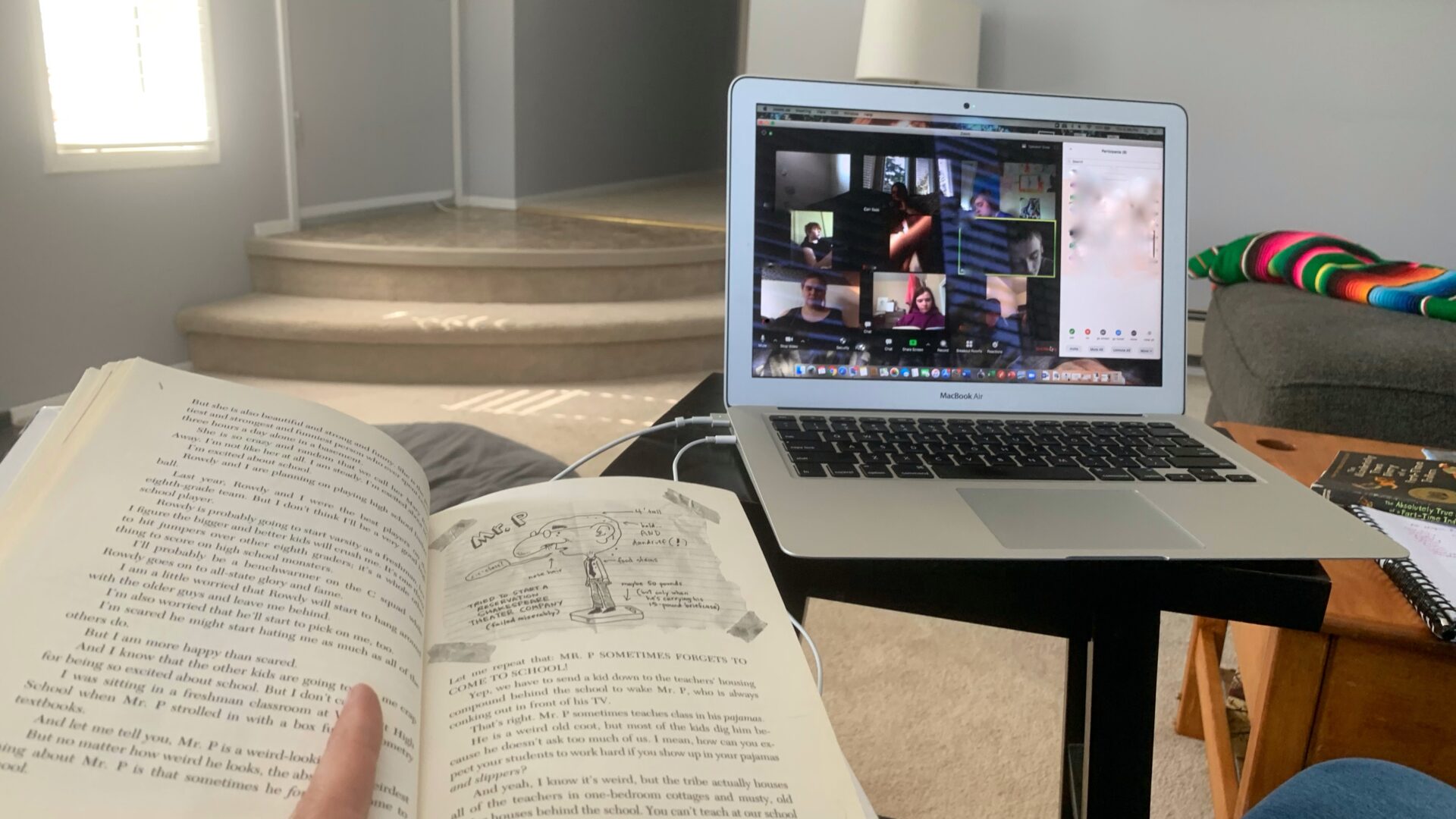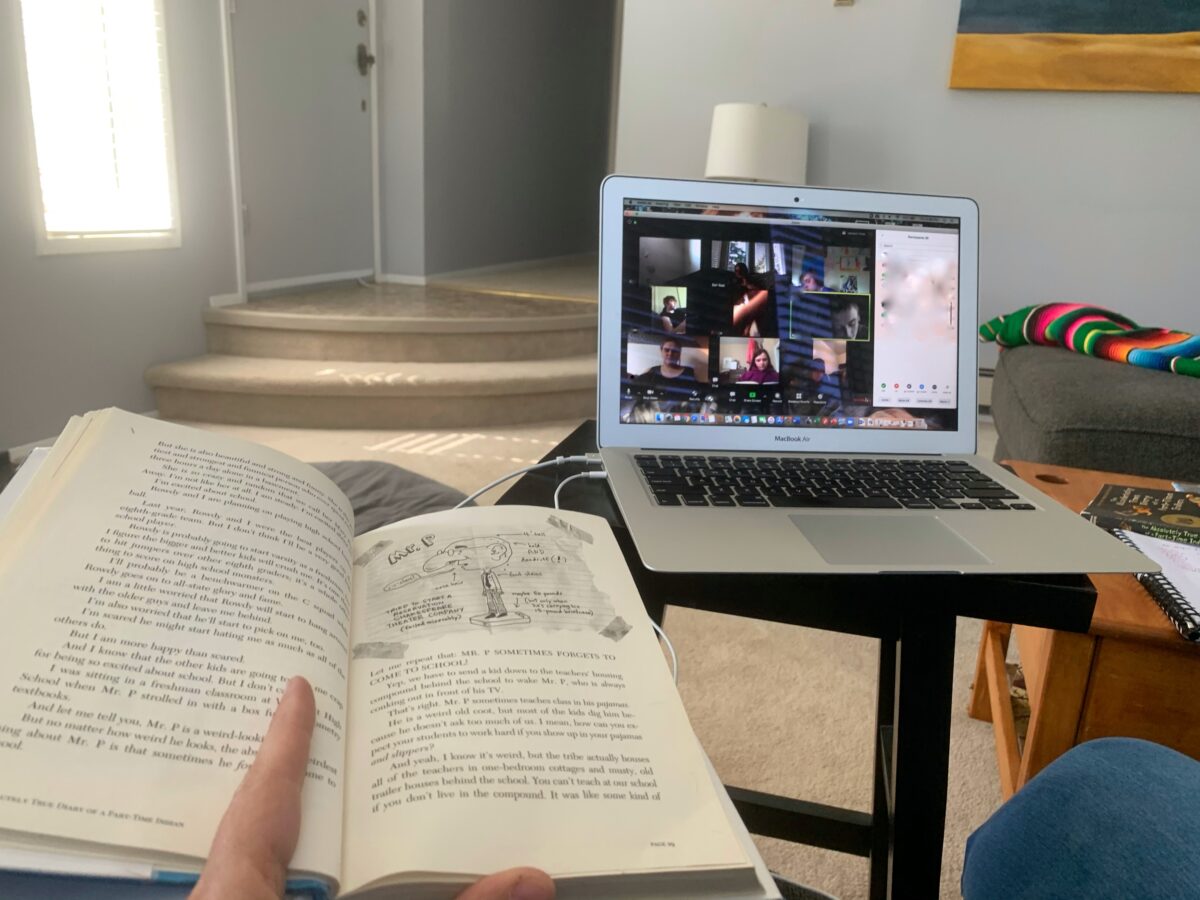The Experience – All Night Read
Last Thursday nine students and I read one of my favourite books. Our task: to read from start to finish, without stopping. I had learned of such an idea from Alan, who shared stories of his friend Gardner reading Paradise Lost in one sitting with his university class. Gardner writes that reading Milton’s work in such a way is to have “the experience.”
When I chose the novel, I suppose it was for that same reason. I often tell people you can’t graduate from life without reading Sherman Alexie’s The Absolutely True Diary of a Part Time Indian. More than the book being my go-to, the book resonates. It’s not timeless. In fact, we are almost to that tender point when the Diary will need to be set aside to support a more contemporary narrative. But not last Thursday.
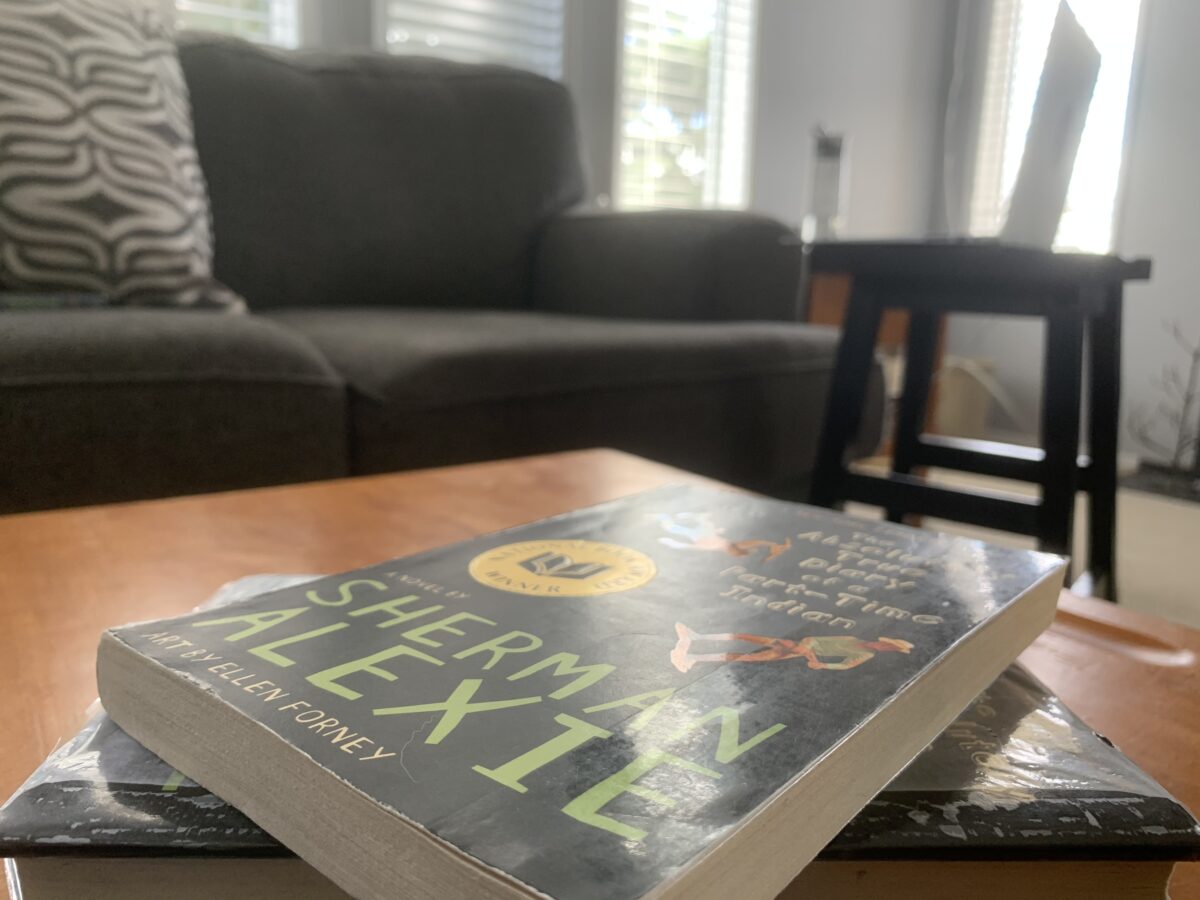
Thursday we read the book from cover to cover. In one go. I had no guarantee of having willing participants to jump in and to lend their voice to the reading of the story. I had no idea how the night would unfold.
~
Our book club had stopped meeting after COVID – 19 pushed us into isolation. As a support teacher, I needed to find creative ways to help two students earn their ELA credit. Word of the all-night-read got around. “I have an idea…” At Book Club in December, we had briefly floated the idea. Then the pandemic. But word got around. Students on my caseload wanted to join. Students from other schools wanted to join.
There were ten of us. What surprised me, and there was much that surprised me, was the focus.
We were scheduled to begin at 4:00pm. At 3:50pm I opened the Zoom call and almost everyone was there in the waiting room. We reviewed expectations: reading was voluntary, munchies were a must, parameters on when we might need to mute our mics, and appropriate behaviour. We took bets on how long it would take to read. My guess, 8-9 hours.
I then briefly introduced the book. I spoke of how the story is one of my favourites. Is semi-autobiographical. How we can, each of us, find our life mantras within the text. How we can relate, regardless of age. I shared that the story makes me laugh. Makes me cry and is written the way we think: real
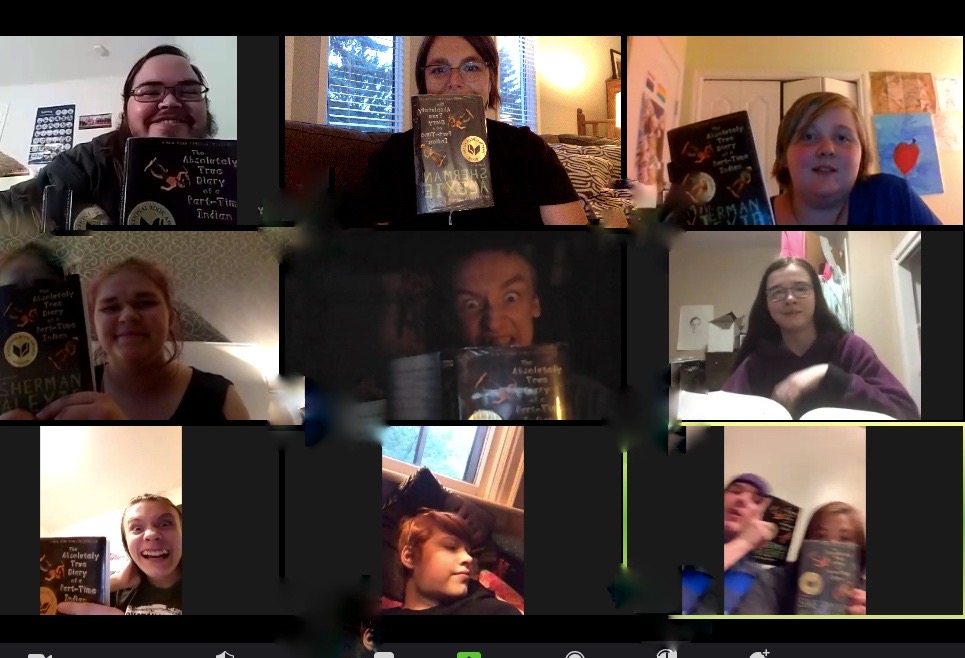
~
No one had opened their brown manila envelopes yet. I had delivered these packages the day before. Oh the joy of seeing students for the first time in more than 8 weeks. Dropping packages on door steps, in mail boxes, sliding them across the hood of my car. For a few, I walked through the directions: email me (so I would have their preferred email), and don’t open the envelope until the Zoom call at 4:00pm.
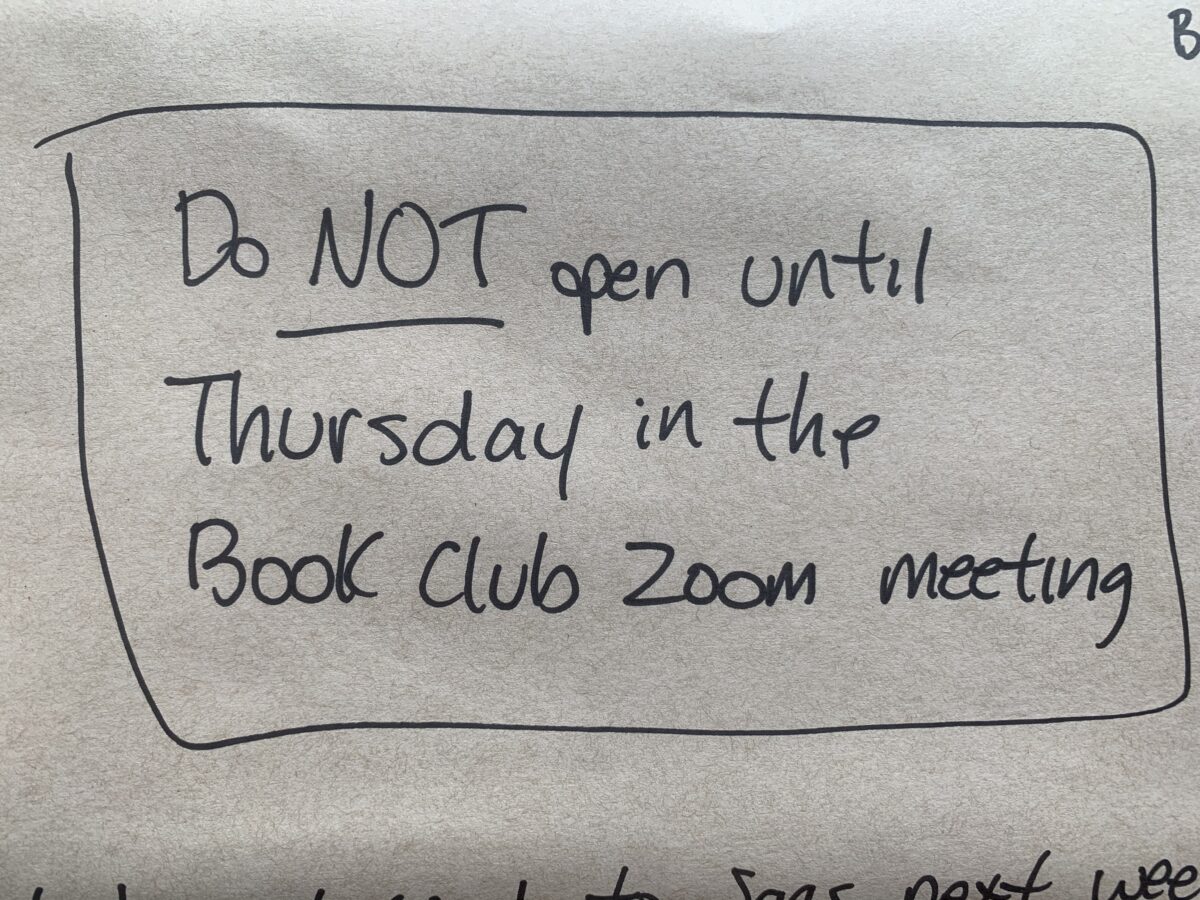
Everyone emailed. We opened our envelopes together. I remember when the novel was first read to me. In my third year of university, Dr. Fulton rolled her cart of books and papers and magic into the room and read. I was a university student and she read aloud. For the entire period. And oh, my heart grew three times that day. I didn’t know books could live like that. And I was already a lifelong reader, growing up deep in the pages of Monster Manuals and Dragonlance. What I learned from Dr. Fulton is how it felt to be a student being read to. The gloriousness of being so fully loved. There is a belonging that comes when a treasured teacher gives their voice, gifts their treasured volumes, and fills the room with story.
~
I remember buying a complete set of this book in my first year of teaching. I also remember how over those first years, they became treasures as students kept them. The life lessons and mantras needing to be held near.
~
I started the stopwatch and we began. I suppose at first, in those first breaths, there was a strangeness. I had my headphones plugged in and I was reading to the screen. But a young man, D, was there, his mic on, a student from a book club, a young man who travels everywhere with his backpack of books. I could hear him. I could hear him listening.
“Hahaha.” …. “Well that’s no good.” ….. “Oh boy.”
At the end of the second chapter, the journey of the story we were reading becomes real. The narrator’s dog must be put down. Shot actually. Brilliant storytelling by Alexie here: we are barely into the story. Hardly invested. More importantly, Alexie poses a question that has silenced every group of kids with whom I’ve shared the novel, “Do you want to know the worst part about being poor?”
And Alexie answers the question. In a great big messy narrative that ends with his dad shooting his beloved pup.
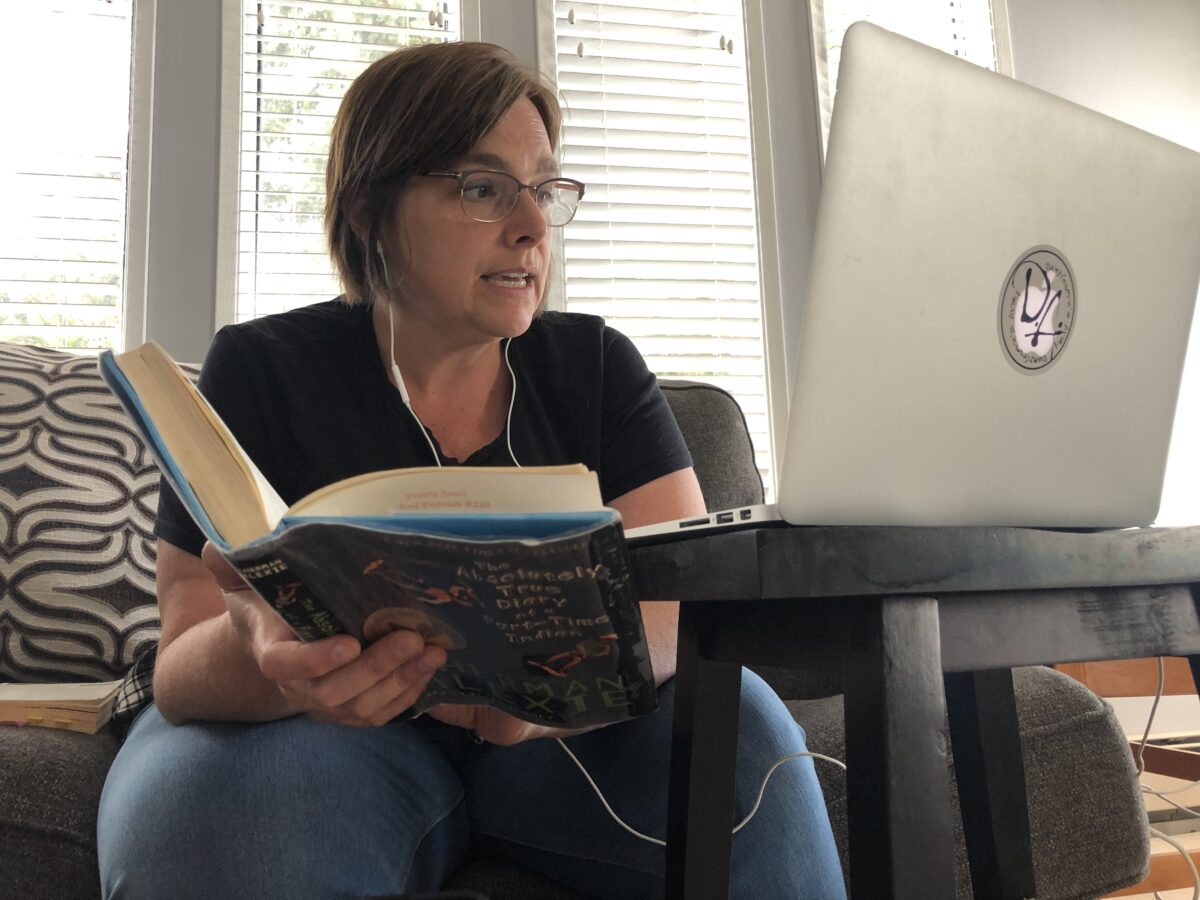
I was hesitant to read this section. This group are gamers. The time was slightly past 4:00pm. I kept my eyes on the page. I read on. And the dog died. The narrator was powerless to stop it. When I looked up the students were huddled into their books. Tucked in tight. Some had turned their shoulders away from the camera. One young student stood in the doorway of her family’s tiny apartment, her back to monitor.
That was it. We were hooked.
And I read on.
~
As the hours slipped by students volunteered to read. Some had a reading skill that surpassed mine. Others looked ahead, found one-page chapters, and volunteered to read. And then read again. Almost everyone read. Each lending the song of their voice to the evening’s tale.
There were times when one of the students read and I had a chance to study the readers. Each had books curled and coupled in their hands. They were snuggled on beds, propped on chairs surrounded by pillows, or some squeezed in nooks. They weren’t looking at the screen. They were following along.
They were following along.
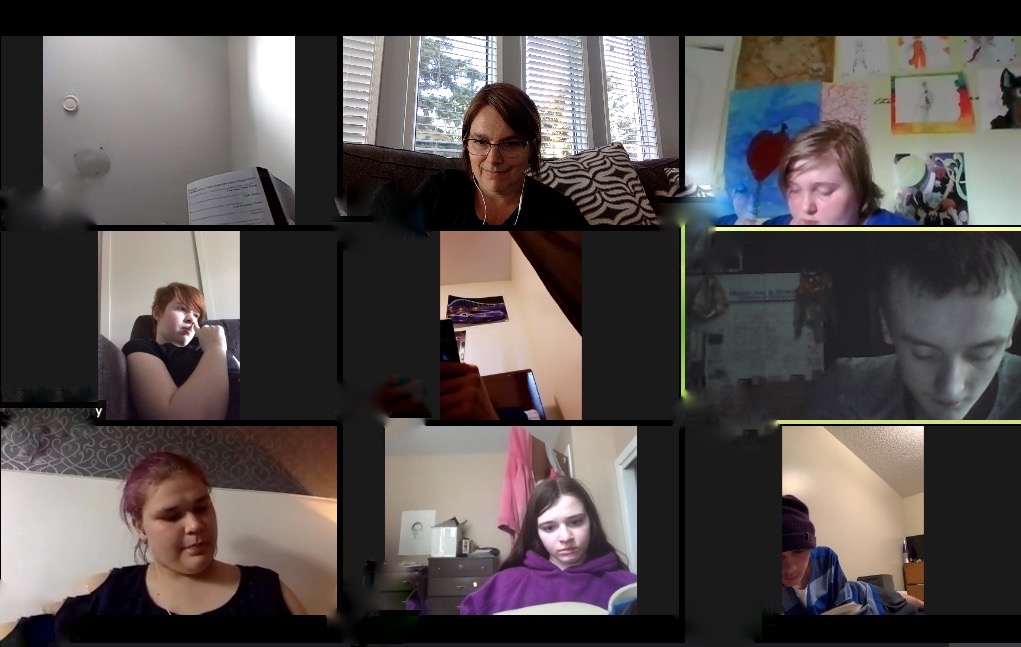
This mix-matched, hodge-podge group of teenagers, gathered together, were engrossed in the story. They looked like they were listening to a podcast, I thought. Only, we were reading. Live.
This group of non attenders, of gamers, of kids who entered the pandemic with no marks, were deep in story.
I smiled. I pulled my knees up on the sofa and listened too.
And we read. A few chapters I made sure to read. The basketball chapters – because I love ball, and I love reading these bits of the story aloud. And the end. That beautiful end with Stupid horse and Turtle Lake.
We each read though, taking turns.
We read without stop (youth have far stronger bladders than I). We stopped for 15 minutes around page 120 for a beverage, munchie, and bathroom break. And we kept reading. At the end, I wept as I read and so did a few of the kids.
We read for 4 hours and 40 minutes. 4 hours and 40 minutes (that’s a school day, almost – think about it).
When we finished, the students stayed. They wanted to talk. They wanted to talk about the story, about the book. “Saas! Why didn’t you recommend this book to me when I was in school?”
Facepalm. ~ “I did, It’s one of my go-tos.”
“Well, I don’t remember.”
“The braids were hard” / “‘Only an alcoholic when he drinks’ – that’s the line.” / “He’s right about not understanding how someone is affected by grief.”
“I’m not a fighter either but I want to stand up too.”
”What did Alexie do to change the world since he didn’t fight?”
“Talks about things.” / “He wrote this book.”
“Hey Saas, before we go, do you think I could get a copy of this book?”
“Yah, me too.” Four of them asked for copies. And today, a week later while collecting the books from students to return to school, another student asked the same. 50% of them.
~
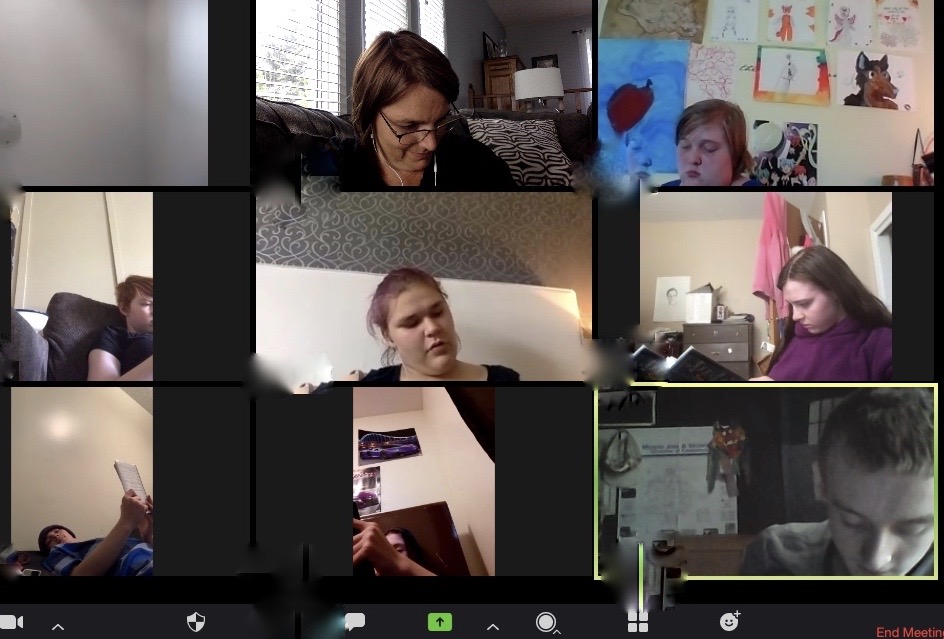
So what did I learn?
They asked if we could “do this again.” They loved the time together. Sure, of the ten, there were five separate friend groups, so no one was truly alone. They wanted to return, to come back together, to read on. Though they offered a few ideas around genre, they were adamant that they liked opening the brown manila and simply diving in. They wanted to be part of listening and reading a good story.
There’s so many teachings here.
How many kids finish a novel and ask for a copy, ask for a copy the moment they finish reading? How many kids sit and listen, and sit and read for five straight hours. ~ there were only two students who attended that belonged to our book club.
I believe we are all readers. I don’t believe we all practice reading or enjoy reading in the same ways. I believe we are lifelong readers. I also believe that being attentive and creative when it comes to reading alongside teenagers is incredibly important for inspiring the love for reading, for books, and for story.
Maybe, we all missed seeing each other. Maybe, we all missed seeing someone. Our nearly six hour Zoom call was a beautiful connection to days that feel years gone by. I miss looking up and seeing students. Maybe, they missed hearing others laugh, cry, having something to do as part of a whole. Maybe, they missed each other. Maybe they missed me too.
No, we didn’t read Milton. And no, no one is in university. We are a group of resilient folk attached to each other through language, love, literature, a bloody pandemic, and common need for belonging. But oi, what a heck of an experience.
Watch your mailbox for a manila envelope. Round two.
